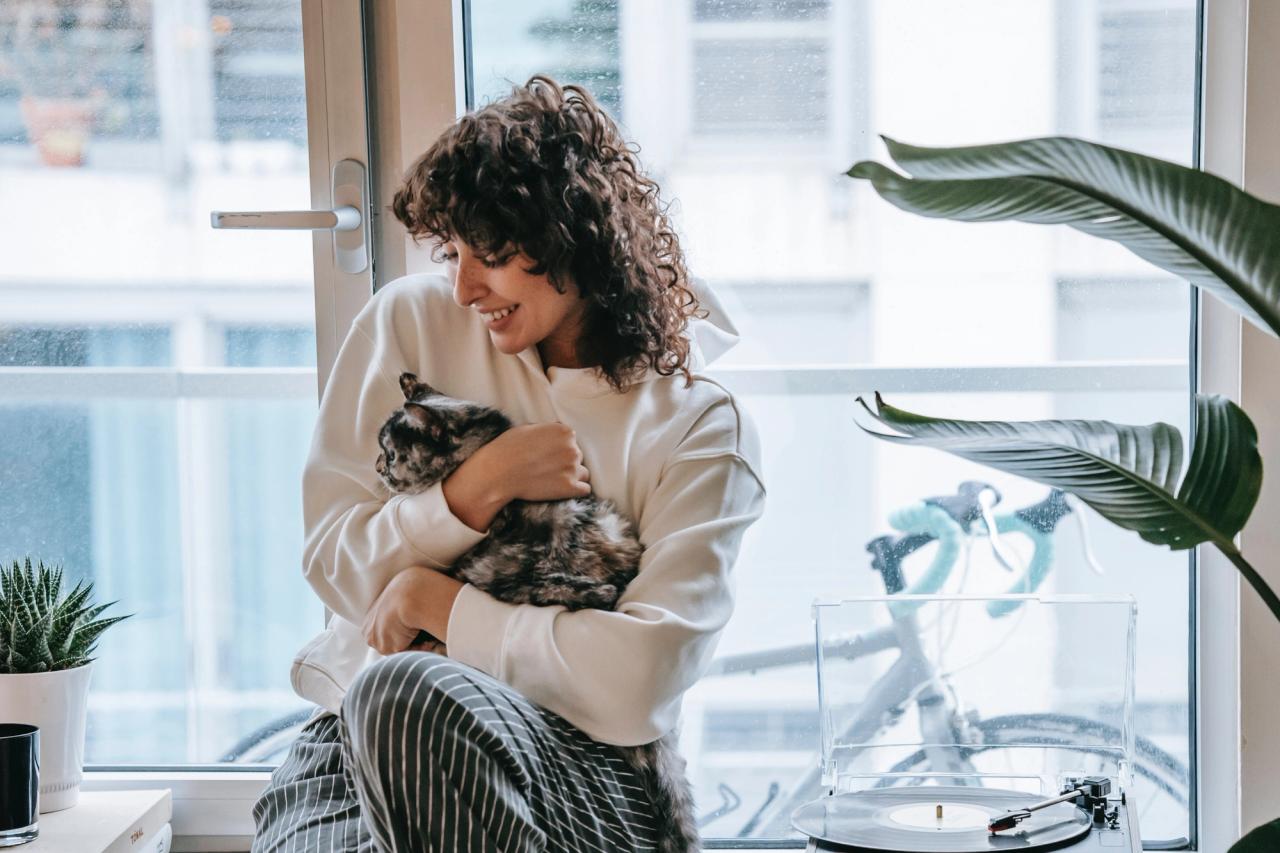Keep your cats safe and away from these poisonous plants!
We are sure you’ve heard of catnip, but do you know which plants can be dangerous for your cat? We share the most common dangers of plants for cats and how to take care of your cat if it gets sick.


Whether your cat’s domain is indoor-only or it roams free outdoors, we want to help you keep it safe by teaching you about which plants are safe or unsafe to keep at home and in your garden. We’ll share how to tell if your pet has symptoms of poisoning from a plant and what to do to make them feel better as soon as possible. Don’t worry!
Houseplants
Many common plants can harm cats if they ingest their leaves, flowers, or even pollen. For a kitten-friendly home, here is a list of some cat-safe, popular house plants:
- money tree
- bamboo palm
- prayer plant
- watermelon pilea
- friendship plant
- moth orchid
- basil, sage and thyme
- bird’s nest fern
- Boston fern
- calathea rattlesnake
- spider plant
- parlour palm
- elk fern
- haworthia zebra
Keep catnip at home for your furry friends to chew on! Eating catnip helps them get rid of hairballs they have ingested while grooming themselves and provides nourishing folic acid that is good for their stomachs.
If you know which plants to avoid, you can keep your cat safe during your next plant haul. Also avoid solid fertiliser for your plants which can be tempting for kittens to explore and refrain from using non-organic soil or fertiliser, pesticides and leaf gloss.
Common houseplants that are toxic for cats include:
- aloe vera
- chilli plants, onions, avocado plants
- ivy
- ficus elastica
- yucca
- amaryllis
- lilies
- sago palm
- tulips
- hyacinths
- daffodils
- autumn crocus
- poinsettias
- snake plants
It’s a good idea to train your cat not to nibble on houseplants at all – you can do this by sprinkling something spicy but harmless, like black pepper, on the leaves of plants your cat could reach. You can also keep your cat from nibbling on plants by keeping them occupied. If you have an indoor cat, giving them toys and catnip will do the trick!
Make sure to keep your cats away from vases of flowers as well – drinking the water in a vase of tulips would be enough to make them sick. Cacti are not poisonous to cats, but their spikes could hurt them.
In the garden
Make sure not to keep poisonous plants in your garden. These outdoor plants are cat-safe:
- catnip
- cat mint
- cat grass
- bamboo
- hibiscus
- dill, basil, coriander, thyme, rosemary and sage
- petunias
- sunflowers
- nasturtium
- pumpkins, carrots, cucumbers, kale
Garden plants that are harmful to cats include:
- peonies
- ivy
- chrysanthemum
- daffodils
- azalea
- iris bulbs
- wisteria
- marigolds
- juniper
- autumn crocus
- eucalyptus
- rhubarb
- mistletoe
- horse chestnuts
- tomato plants and sweet peas
Yew is highly toxic for cats – the poison it contains can affect your cat’s heart and circulation and is extremely dangerous. Look out for monkshood too, one of Europe’s most poisonous plants.
How do I know if a plant has poisoned my cat?
Of course, if your feline friend is an outdoor cat, it may come across a toxic plant in someone else’s garden or a nearby park. They might knock over something in your home that can harm them. You can look out for the following symptoms:
Poisoning can result in various symptoms including diarrhoea, vomiting, dizziness, paralysis, dilated pupils, cramps, increased salivation or foaming at the mouth.
What do I do next?
If your cat is showing any of the above symptoms, you should contact a vet immediately. Do not try to treat your cat yourself – just stay calm, reassure your poorly pet, and take them straight to the vet or get advice via video consultation as soon as you can. A vet will provide the right medicine to stabilise and detoxify them. If possible, bring a sample of the plant your cat chewed on for the vet to examine.
Our new pet health insurance offers three different levels of coverage that include up to 100% reimbursement, up to €5.000 per year for operations, and 24/7 video consultations. That way, you know your furry friend is always safe!
Now you can confidently choose plants for your home and garden that are cat-safe! There is no need to worry about plant poisoning – you know how to avoid it, recognise it, and get treatment for your beloved pet kitty.
Would you like some extra peace of mind? Check out our Pet Health Insurance plans and get a quote:

